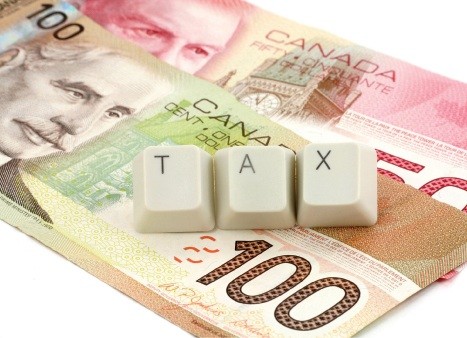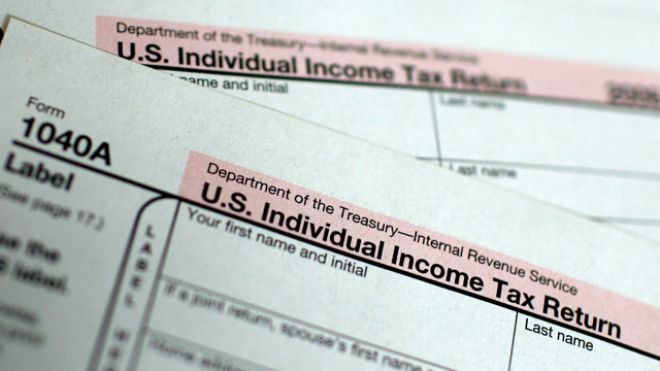How to Reduce Taxes on Mutual Funds
Post on: 5 Июнь, 2015 No Comment

You can opt-out at any time.
While mutual funds may be one of the easiest ways to invest, they also carry more than their share of potential tax headaches. Investors don’t always take this issue into consideration, but minimizing the taxes on mutual funds can go a long way to boosting your longer-term returns. With this in mind, here are ten ways you can reduce the taxes on your mutual fund investments and keep a greater share of your hard-earned money:
1) Maximize Your IRA and 401(k) Investments
Just as the power of compounding can help your savings grow exponentially over time, so too can taxes led to “negative compounding” by removing a portion of your investment gains each year. As a result, the more money you can put into tax-deferred Individual Retirement Account (IRA). 401(k)s, or other qualified retirement plans, the better. While you will eventually have to pay taxes when you begin to withdraw money from these accounts, the years of having your investments in a tax-deferred vehicle allow you maximize the impact of compounding over time.
2) Consider Index Funds Rather Than Actively-Managed Funds
Index funds tend to be more tax efficient than actively managed funds. While active managers buy and sell securities on a frequent basis, index funds tend to be relatively stable since the indices themselves only change modestly from year to year. As a result, index funds will typically have only minimal capital gains each year. However, keep in mind that an investor who holds an index fund for a period of time and experiences share price appreciation will have to pay a capital gains tax upon the sale of the fund.
3) Consider ETFs Rather Than Mutual Funds
Like index funds, exchange-traded funds tend to have lower a tax bite than actively-managed mutual funds because their portfolios tend to be more stable. While there are actively-managed ETFs, most tend to track an index. In addition, ETF managers aren’t forced to sell securities in order to meet redemptions. According to Barron’s, only 103 of 1,168 ETFs (8.8%) made capital gains distributions in 2011. Among bond funds, 42% of fixed-income funds made distributions in 2011, compared with 27% of bond ETFs. And of course, the lower likelihood of a distribution means less chance that you’ll be on the hook for a tax at year-end.
4) Consider Tax-Efficient Funds
Municipal bond funds are typically the first option that comes to mind when the goal is lowering your tax bill. The interest from muni funds may be non-taxable on the federal level and, if the income is owned by a bond issued by their state of residence, it may be non-taxable on the state level as well. But munis aren’t the only option for tax-sensitive investors: there are also tax-efficient funds, which are managed with the specific goal of reducing investors’ tax burden. This can be achieved by investing in municipal bonds, avoiding income-paying securities, and making sure that gains are matched with offsetting losses. Tax-efficient funds aren’t suitable for everyone, but it is an option for those who need to reduce their tax bill.
5) When in Doubt, Choose Funds with Lower Turnover
Whether or not a fund is specifically designed to be “tax efficient,” less portfolio turnover will almost always signal that a fund will have a lower tax burden than its peers. A fund that turns over its holdings quickly will generate a large amount of gains and losses, and you may even end up paying a capital gain during a year in which the fund’s share price declines. In addition, lower turnover is often a sign of a more sustainable, longer-term approach rather than one that is more likely to be volatile. Lower turnover is therefore often a compelling attribute even if reducing your taxes isn’t a top priority.
6) High Yield Equals High Tax
Higher yielding investments certainly have their advantages, but they also come with a shortfall: a greater tax burden for anyone who owns them. Investors may therefore be better served by putting higher-yielding investments into tax-deferred accounts, therefore minimizing the impact of taxation on their longer-term returns.
7) Checks and Exchanges are Both Taxable Events
While most people typically use their bank account or money market funds to write checks, check-writing privileges are also available on some short-term bond funds. Since these have a variable share price, each check you write will be a taxable event since it is a sale of shares. Each check could therefore create a tax bill, a record-keeping nightmare, and endless confusion come tax time. Avoid this if possible, and at the very least be aware of the possibility.
Exchanges within the same fund family are a also taxable event if you execute the transaction in a taxable account, a fact that is often lost on fund investors. However, when you sell shares of a fund, that sale triggers a capital gain or loss on your investment no matter what you do with the cash after the fact.
8) Don’t Buy Before a Year-End Distribution

Funds pay their capital gains distributions on a specified “ex-dividend” date to shareholders of record on that day. And it doesn’t matter if you bought the fund 10 years ago or the day before – if you hold the fund on the ex-dividend day, you’re on the hook for the capital gains tax. This is an important consideration, since you will then have to pay tax on the capital gain even if you weren’t in the fund when the gain was incurred. Rather than senselessly saddling yourself with this tax liability, always check to see when a fund is making its distribution before you invest. If the ex-dividend date is near, simply wait until it has passed before you invest. This is particularly important in November and December, since most funds make their distributions at year-end.
9) Plan Ahead for Your Tax Bill
When you sell a fund, or any investment for that matter, be alert to the tax implications and – if appropriate – set aside cash to pay the tax in the following year. An investor who has held a fund for a long time and elects to sell shares will be on the hook for a capital gains tax the following year. If that cash isn’t available, he or she will have to dip into their savings to foot the bill.
At the same time, some forward thinking can help when selecting the timing of a sale. Since securities held for more than a year are taxed at a lower rate, it may pay to delay a sale until after the one year mark has passed.
Having said all of this.
10) “Don’t Let the Tax Tail Wag the Investment Dog”
While taxes are important, they shouldn’t be the primary driver of most investors’ strategies. Worrying too much about taxes can cause you to miss the larger picture. For instance, if a fund gains 25% in a year, an investor may save more money in the end by selling a portion of the position to lock in profits rather than becoming overly concerned about their tax bill. This is especially true for those in lower tax brackets.
The takeaway: sidestep taxes to the greatest extent possible, but make sure that taxes are given their appropriate emphasis in relation to other considerations.
Disclaimer. The information on this site is provided for discussion purposes only, and should not be construed as investment advice. Under no circumstances does this information represent a recommendation to buy or sell securities. Always consult a tax professional before making investment decisions.














